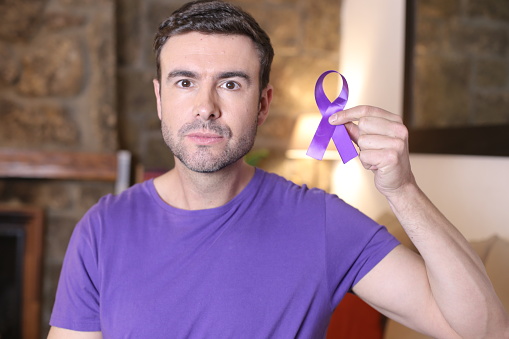Testicular cancer affects 9,000 men in the United States. It is also one of the most treatable cancers, with a 95% five-year survival rate. However, misdiagnosis can worsen the situation. It can cause delayed treatment and lower chances of survival.
Testicular Cancer Misdiagnosis
Testicular cancer accounts for 1% of all male cancers. It is also one of the most curable types of cancer if diagnosed and treated early.
However, misdiagnosis can delay treatment and worsen your prognosis. The signs of testicular cancer are similar to other conditions. The similarity makes it difficult to identify the disease.
Testicular pain, swelling, or lumps can also be caused by infections. They may result from injury to the testicles. The symptoms of testicular cancer can be mistaken for less severe conditions. This often leads to delayed diagnosis and treatment.
Lack of awareness is another reason for misdiagnosis. Some doctors are unfamiliar with the symptoms of testicular cancer. They may not consider it a possible diagnosis. This often leads to delayed diagnosis.
Errors in medical imaging or misinterpretation of test results can also cause misdiagnosis. Ultrasound, CT scans, and other imaging tests commonly diagnose testicular cancer. But mistakes happen, and abnormalities may be missed, leading to a false negative result.
You can avoid misdiagnosis by taking all symptoms seriously. Be particularly careful if you have a family history of testicular cancer. You can advocate for yourself by discussing your concerns and requesting further testing.
Follow up on abnormal test results and seek a second opinion if you doubt your diagnosis. Early detection and treatment are critical to successful outcomes in testicular cancer. Prompt action can make all the difference.
Negligence In Testicular Cancer
Negligence in testicular cancer is the failure to detect or diagnose the disease promptly and appropriately. It results in harm or injury to the patient. Negligence in testicular cancer cases can take many forms.
Here are a few of them:
1. Failure to Diagnose
Sometimes, healthcare providers may fail to diagnose testicular cancer on time. This happens if they do not perform a thorough physical examination. They may also fail to order appropriate diagnostic tests like a testicular ultrasound or blood tests to measure tumor markers.
2. Misdiagnosis
Testicular cancer may be misdiagnosed as another condition. It is often mistaken for testicular infection or injury. A healthcare provider may fail to recognize the signs of the disease. They may misinterpret test results.
Misdiagnosis causes delayed treatment and potentially more serious health consequences. Delayed diagnosis and treatment allow the cancer to grow. It can spread to other body parts. Delayed treatment increases the risk of complications. It reduces the patient’s chances of survival.
3. Failure to Follow Up
After treating a patient for testicular cancer, doctors must follow up. Failure to follow up can be considered negligence. It can cause missed opportunities for early detection of recurrence or the development of new tumors.
After treatment, patients require regular follow-up appointments. Doctors need to monitor them for recurrence and ensure they recover well. These appointments typically involve physical examinations, blood tests, and imaging tests. They all check for signs of cancer.
4. Inadequate Informed Consent
Before undergoing treatment for testicular cancer, patients have the right to receive detailed information. They should be informed about the proposed treatment’s risks, benefits, and alternatives. Failure to provide this information can constitute negligence. It could result in harm to the patient.
Seek Legal Help
Cancer negligence and misdiagnosis can have serious consequences. They can lead to delayed or ineffective treatment. Get legal help for cancer misdiagnosis if you or your loved one have been victims.
A medical malpractice lawyer can explain your legal rights. They can help you seek compensation for any harm caused by medical negligence.
Your lawyer can also help hold medical professionals accountable for their actions. They can help prevent similar instances of negligence and misdiagnosis from occurring in the future. Act fast, as there may be time limits for filing a medical malpractice claim.
Testicular cancer is a severe condition that requires prompt diagnosis and treatment. Negligence and misdiagnosis can cause delayed treatment and potentially fatal outcomes. Healthcare providers must take a thorough medical history, perform a physical examination, and order appropriate diagnostic tests to identify testicular cancer at an early stage.
Patients must stay vigilant about their health. Seek a second opinion if you are unsatisfied with your diagnosis or treatment. Hire a lawyer if you or your loved ones have suffered negligence or misdiagnosis.

